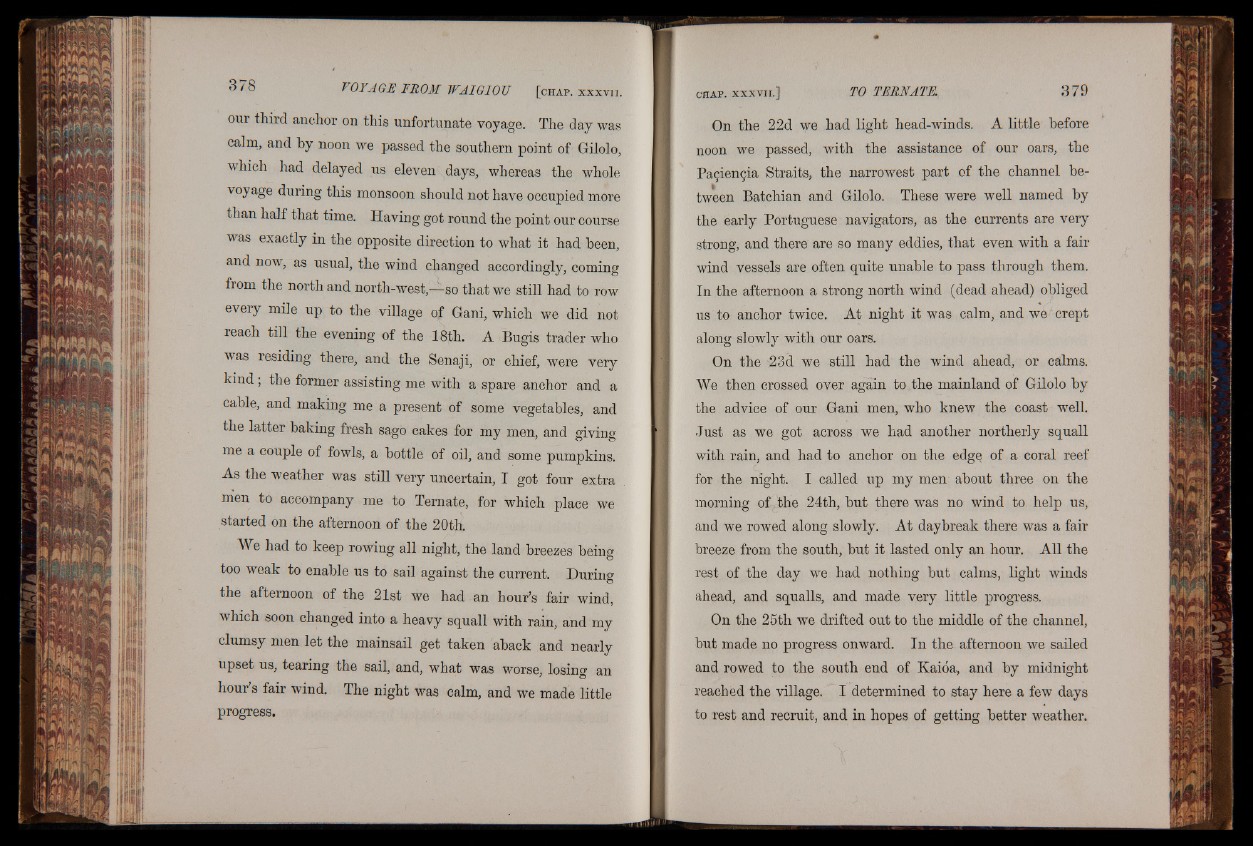
our third anchor on this unfortunate voyage. The day was
calm, and by noon we passed the southern point of Gilolo,
which had delayed us eleven days, whereas the whole
voyage during this monsoon should not have occupied more
than half that time. Having got round the point our course
was exactly in the opposite direction to what it had been,
and now, as usual, the wind changed accordingly, coming
from the north and north-west,—so that we still had to row
every mile up to the village of Gani, which we did not
reach till the evening of the 18th. A Bugis trader who
was residing there, and the Senaji, or chief, were very
kind, the former assisting me with a spare anchor and a
cable, and making me a present of some vegetables, and
the latter baking fresh sago cakes for my men, and giving
me a couple of fowls, a bottle of oil, and some pumpkins.
As the weather was still very uncertain, I got four extra
men to accompany me to Ternate, for which place we
started on the afternoon of the 2 0 th.
We had to keep rowing all night, the land breezes being
too weak to enable us to sail against the current. During
the afternoon of the 2 1 st we had an hour’s fair wind,
which soon changed into a heavy squall with rain, and my
clumsy men let the mainsail get taken aback and nearly
upset us, tearing the sail, and, what was worse, losing an
hour s fair wind. The night was calm, and we made little
progress.
On the 22d we had light head-winds. A little before
noon we passed, with the assistance of our oars, the
Pa<jien9ia Straits, the narrowest part of the channel between
Batchian and Gilolo. These were well named by
the early Portuguese navigators, as the currents are very
strong, and there are so many eddies, that even with a fair
wind vessels are often quite unable to pass through them.
In the afternoon a strong north wind (dead ahead) obliged
us to anchor twice. At night it was calm, and we crept
along slowly with our oars.
On the 23d we still had the wind ahead, or calms.
We then crossed over again to the mainland of Gilolo by
the advice of our Gani men, who knew the coast well.
Just as we got across we had another northerly squall
with rain, and had to anchor on the edge of a coral reef
for the night. I called up my men about three on the
morning of the 24th, but there was no wind to help us,
and we rowed along slowly. At daybreak there was a fair
breeze from the south, but it lasted only an hour. All the
rest of the day we had nothing but calms, light winds
ahead, and squalls, and made very little progress.
On the 25th we drifted out to the middle of the channel,
but made no progress onward. In the afternoon we sailed
and rowed to the south end of Kaioa, and by midnight
reached the village. I determined to stay here a few days
to rest and recruit, and in hopes of getting better weather.